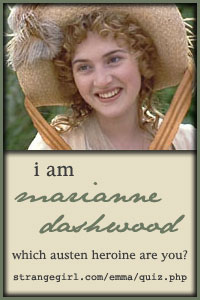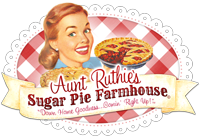Mrs. George begins this chapter with, "No words ever written have carried the weight or the comfort that these five do ~ The LORD is my shepherd." Saints young and old have the sweet assurance of God's promise that He will be our Shepherd. Jesus said in John 10:14 that "I am the good shepherd; and I know my sheep, and am known of mine." Every person from every walk and season of life need the loving care of their Shepherd.
Have you ever wondered how the thought of God as a shepherd originated? Mrs. George writes that "in Hebrew, the five English words ~ the Lord is my shepherd ~ come from two words, Jehovah~Rohi.
So what exactly does Jehovah~Rohi do? One major meaning of the word is "to feed". Sisters, we have God's promise to feed us! We need both physical and spiritual food, and can enjoy both from the very hand of our Shepherd! I think I may have shared in an earlier post about a time when we had absolutely no food in our home. Our oldest was only 6 months old, and we didn't have the money to buy her anything, either. Our only option was to buy groceries with our credit card. We prayed as we gave her the last jar of food.
That very evening after church, a couple approached us and said they had something they wanted to give us. To our amazement, they opened their trunk and began to pull out bags of groceries! The trunk was completely full, and all we could do was cry our thanks. When we got home with our bounty and began to unload the groceries, there were 2 bags full of baby food ~ down the actual brand AND flavor that I bought my little one! Oh, sisters, only a loving Shepherd would put us on the hearts of that couple! Tender to God's leading, they blessed us other times by shaking my husband's hand and placing a $100 bill in it. Every time that happened, we were in need of food or paying a bill. How thankful and awed I STILL am to this day how God fed us those difficult months!
In this book, Mrs. George shares several facts about real~life shepherds. She writes, "a good shepherd ~ when there are no pastures, he [himself] gathers the food needed for his flock by using his crook to pull down leaves and berries from the trees. Then he feeds his sheep directly and intimately right out of his own hand!" She concludes this thought with "why should we worry about food and clothing? About finances and money? About security and the needs of life? We have Jehovah~Rohi! We have the Lord as our caring shepherd!"
Not only does Jehovah~Rohi feed us, but He leads us. He is in the leadership role of a prince with his people (2 Samuel 5:2, Isaiah44:28, and Jeremiah 3:15). I think of my husband's role as leader in our home. Things can be falling apart, but when he says that everything will be all right, I'm comforted. I may not know or be involved in all the details it will take, but I'm comforted because my husband says it will be okay. That's the same with Jehovah~Rohi. He's our leader, so we don't need the details. We only need to follow.
So, what kind of follower/sheep am I? Mrs. George writes of 3 types of sheep.
The first is restless and discontent sheep. These sheep jump into other fields, climb into bushes and thorns; they sometimes fall and break their legs. "These nervous and dissatisfied sheep cause the Good Shepherd endless trouble."
The second is worldling sheep. Worldling sheep are intent on pursing their own pleasures and selfish interests ~ none of which have to do with the Shepherd! They "run from bush to bush, searching for variety and sampling every kind of food." They lift their heads every once in a while to see where the Shepherd is, just so they don't wander too far away. These sheep choose to nibble on what is meaningless and even harmful.
The third is the devoted sheep. As Jesus said in John 10, each sheep has a name. The devoted followers answer joyfully whenever the Shepherd calls. "By prolonged and continued fellowship, the sheep who follow nearby enjoy the Shepherd's presence and become His familiar companions. To those closet to Him, He shares the choicest portions of food which He's gathered."
Lastly, rohi also means to warn. Our Shepherd warns us not to consume, partake of, or be involved in activities that don't exalt God (Proverbs 15:14, Isaiah 44:20, and Ezekiel 34:16).
"By penning these two Hebrew words ~ Jehovah~Rohi, David's imagery lifts our thoughts to the highest and tenderest aspect of God's nature. No other name of God carries with it the intimacy and tender friendship of Jehovah~Rohi. Yes, you and I are cared for and cherished ~ so much that God promises to lead us and feed us. Think of it! To be the friend of God!"
I'll close today's post with the words to a favorite old song of mine, entitled "Gentle Shepherd".
Gentle Shepherd, come and lead us,
For we need You to help us find our way.
Gentle Shepherd, come and feed us,
For we need Your strength from day to day.
There's no other we can turn to.
Who can help us face another day?
Gentle Shepherd, come and lead us,
For we need You to help us find our way.















No comments:
Post a Comment